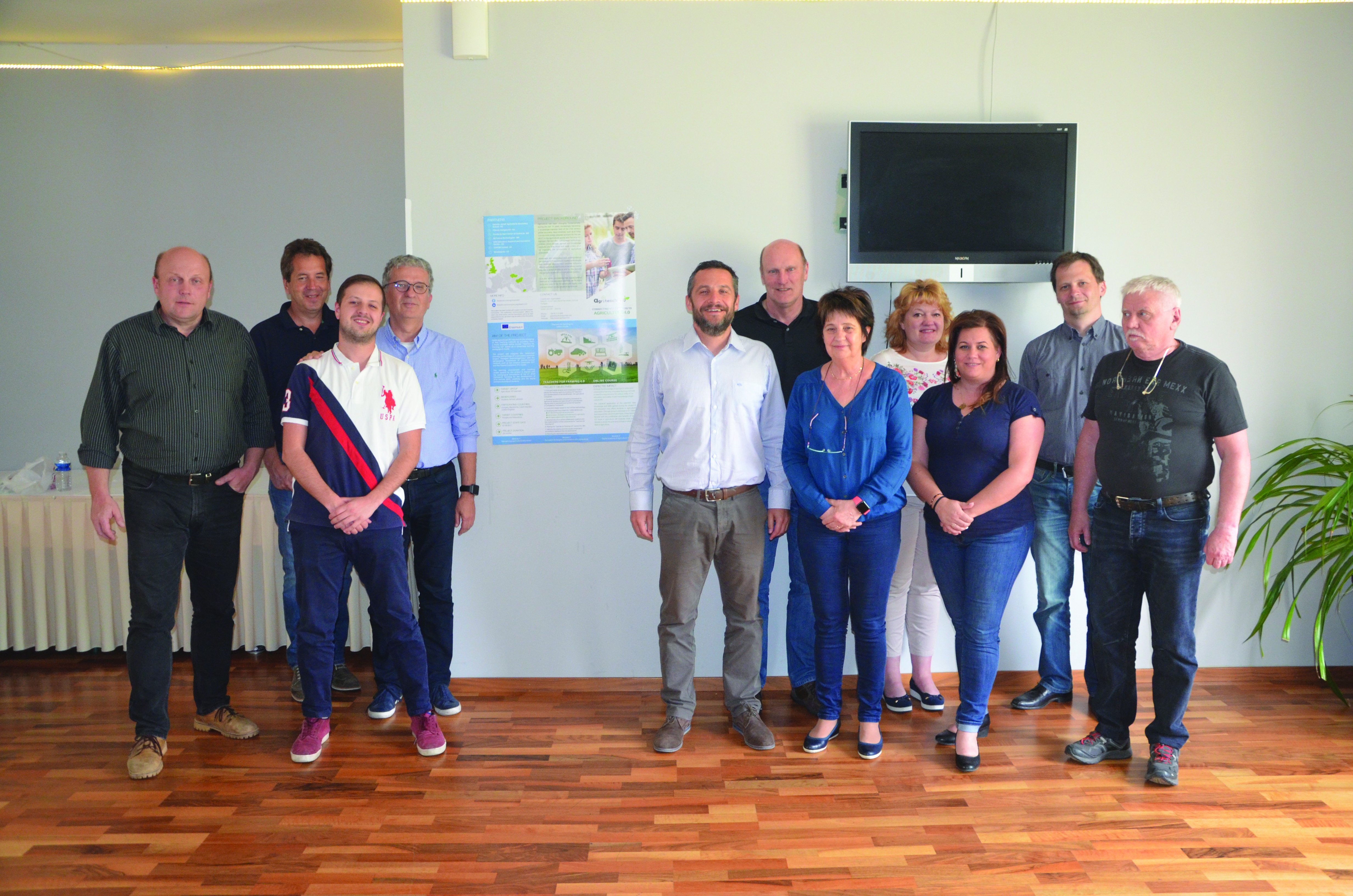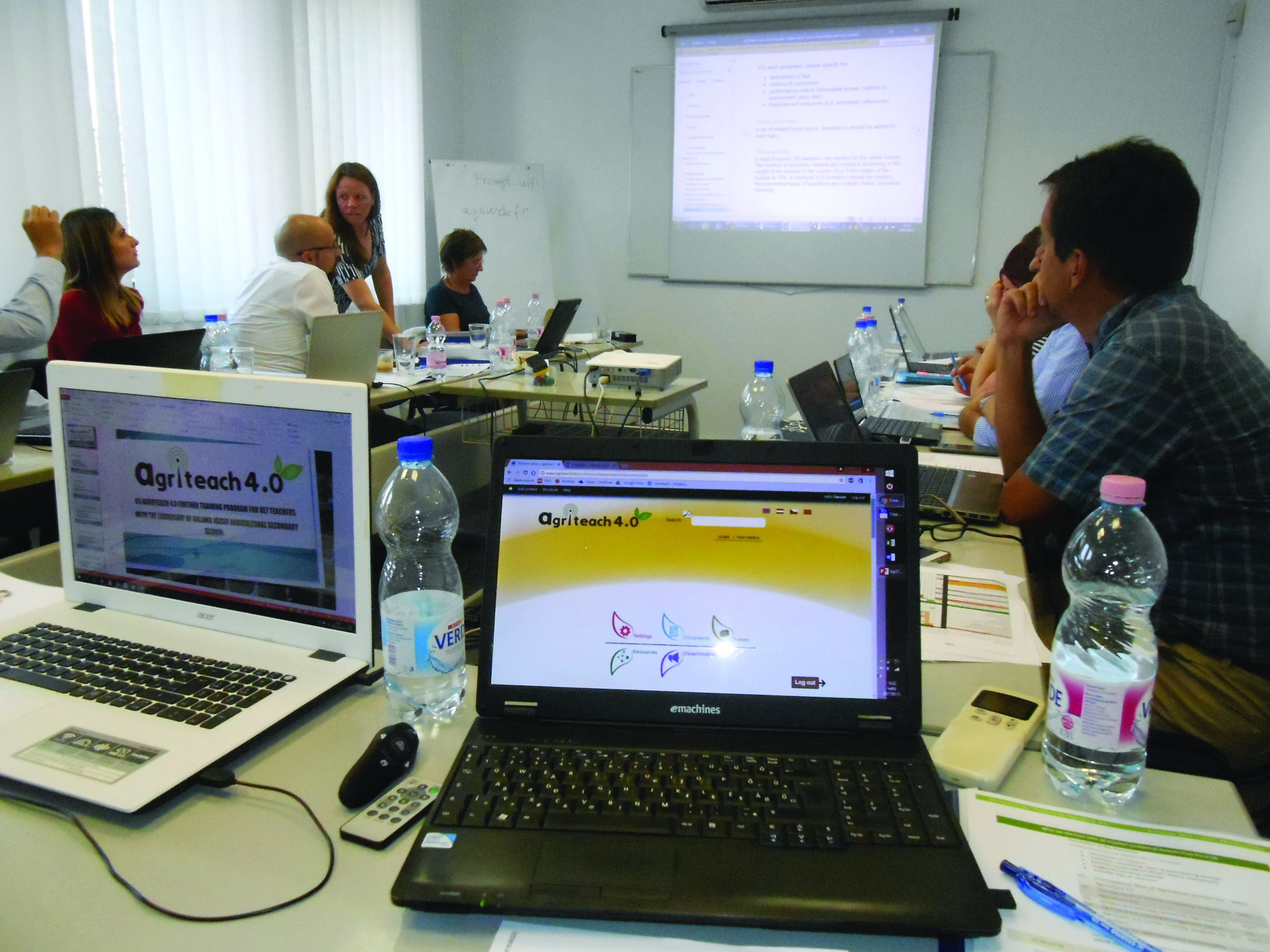
Over the last 15 years, agriculture has fundamentally changed and has become an increasingly knowledge-intensive sector. The current needs of the labour market require a skilled workforce to which agricultural education needs to respond quickly. Considering this, the priority of the Connecting VET Teachers to Agriculture 4.0 project was to create an online, network, collaborative and free training for VET teachers using innovative practices. We asked coordinator Zoltán Horváth about the experience gained during the project.
|
Institution: Alföldi ASZC Galamb József Agricultural Technical and Vocational School (formerly: József Galamb Agricultural Secondary School and Vocational Secondary School) Project title: Connecting VET Teachers to Agriculture 4.0 Coordinator: Zoltán Horváth Project website |
How did you come into contact with Erasmus+?
A friend of mine came up with the idea. Since we had already dealt with the topic before, we were ready to create a complex project; we were waiting for the application opportunity. After we had read the call, we started to prepare the application material and finalise our concept.
What were the main objectives of the project? How did you define them?
The main goal of our project was to respond to the international demand for the work of professional teachers during the digitalisation of agriculture. Today, it is typical of the whole of Europe that agricultural innovation resulted in explosive development among representatives of the sector. As a result, agricultural machinery, especially field technology, has developed rapidly, precision solutions have appeared, and precision solutions are becoming more and more advanced. Farmers more increasingly buy machinery equipped with new technology, but they are becoming less able to take advantage of them. Therefore, it is essential that the future agricultural generation is aware of the fundamentals of digitalisation in the agricultural field and is prepared to exploit the opportunities offered by technical development. The first step is to prepare the teachers profession for the change. The main objectives were therefore set along these lines.

What do you think are the most significant milestones in the project?
The first and most important milestone, which preceded the submission of the proposal, was the definition of the scope of the project partners since cooperation with partners is the key to the implementation. We considered it our priority to involve agricultural professionals and teachers teaching in agricultural training through a questionnaire. Based on the answers, the differences between the agricultural cultures of each country and the special characteristics, to which we had to give an adequate answer during the implementation of the project, were drawn up. The next milestone was the development of an agricultural digitalisation education platform, specific to all partners' countries, as a result of the survey. Uploading this platform and preparing the curriculum became the third milestone, and the conduct of the trial training was the fourth milestone. Our fifth and final task was to finalise the training material and adapt it to the specific needs, based on the feedback received during the training.
What is the attractiveness of Erasmus+ projects among staff?
In particular, the flexibility of the projects, the goal-oriented structure, the limited administration among the colleagues became the attractiveness of the Erasmus+ applications. The administration does not divert energy from real creative work, so due attention can be paid to professional implementation and further development.

How did the emergence of the international dimension affect the institution?
It is important that our colleagues were given an outlook on agricultural vocational training in other countries, the problems created by agricultural digitalisation, and the challenges arising from the inertia of education. As a result, not only did their confidence increase, but they were also able to place themselves on a scale of development mapped along European values. An important developmental point of their self-esteem has become that they found themselves in a much better situation than what they had imagined before, that is, our backlog is not as great as it can be seen from an isolated, uninformed education system.
What is the long-term impact of the project?
A three-volume textbook was prepared for the students from the completed online vocational training curriculum, thanks to which the teaching of the subject "Agricultural digitalisation skills" in our school, which started in the 2020/2021 school year, is unique in the country. The results will also be indicated in the students' certificate.
How can they actually develop their acquired knowledge at home, so that neither knowledge nor motivation is lost?
With regard to agricultural digitalisation, it is also true that, due to constant development, knowledge is easily outdated. In a year, science evolves so much that the knowledge taught no longer corresponds to the current conditions. However, in the long term, standardisation at the European level will be needed on this subject, thanks to which the basic concepts will be defined in a uniform and understandable manner. Thus, basic knowledge will not be about a specific technology but about the basic values of new science, which can be acquired in the classroom and can be easily supplemented in practice with the principles of managing current technological developments.
What are your future plans?
We do not want to be left out of the Erasmus+ programme, so we have submitted another application on precision gardening and knowledge of precision greenhouses. This will not aim at preparing professional teachers, but at expanding students' horticultural skills with the knowledge of state-of-the-art technology.
|
Project values: The training for VET teachers, consisting of three modules developed during the project, provides insight into innovative education, provides information on innovations in agricultural education, European and national initiatives and trends in the agricultural sector, and presents the latest technologies for digital agrarian systems. The completed learning material is available on the Moodle platform and in the form of an electronic book. Innovative pedagogical methods such as blended learning, flipped classrooms and project-based learning have all contributed to the complete acquisition of knowledge and participants' motivation. |
Interview by Diána Baranyi I Erasmus+ Programme Directorate
Last modified: 17-12-2021















